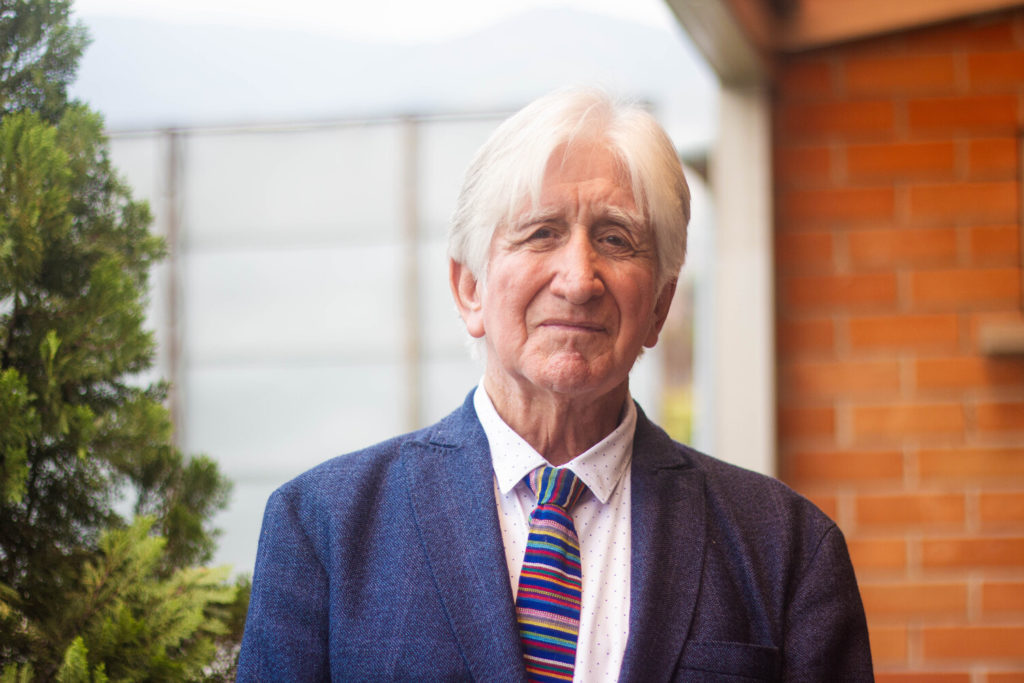
Colombian professor and researcher Francisco Lopera, from the University of Antioquia, has received the 2024 Potamkin Prize for Research in Pick’s, Alzheimer’s, and Related Diseases, awarded annually by the American Academy of Neurology. The Colombian, who has been involved in medical research for 40 years, is the first Latin American to receive this award, which is the most prestigious in the field of neurodegenerative disease research in the world.
Although the Potamkin Prize is viewed as being the level of a Nobel Prize for Alzheimer’s research and is awarded on an individual basis, Lopera recognized all the colleagues, students, and collaborators who have accompanied him in these four decades of work at the university.
The Potamkin Prize for Research in Pick’s, Alzheimer’s, and Related Diseases was created in 1988 in honor of Luba Potamkin, wife of American businessman Victor Potamkin, who had been diagnosed 10 years earlier with Pick’s disease, a neurodegenerative disorder that mainly affects the areas of the brain that control personality, behavior, and language. This award is presented annually by the American Academy of Neurology and the American Brain Foundation and includes a medallion, a $100,000 prize, and a 20-minute lecture at the annual meeting of the American Academy of Neurology.
The neurologist, who received the award in the city of Denver, United States, is also the coordinator of the Neurosciences Group of Antioquia, attached to the Faculty of Medicine of the University of Antioquia.
Three great achievements of Francisco Lopera
The American Academy of Neurology highlighted “three great achievements” of Francisco Lopera that have made him worthy of the Potamkin. Firstly, discovering the largest population group in the world with a genetic form of hereditary Alzheimer’s and identifying the paisa mutation; secondly, following up on that population and defining the preclinical stage of Alzheimer’s; and thirdly, discovering protective genes that can delay the onset of symptoms by 20 to 30 years.
Upon receiving the award, Lopera wanted to thank the teamwork he has been involved in during his years as a researcher at Antioquia. “I am very happy to receive this award and to have had the opportunity to show the American Academy of Neurology, the American Brain Foundation, and the Potamkin family the summary of all the research we have been doing for more than four decades in Antioquia,” said the awardee.
Neuropsychologist Yakeel Quizor points out that Dr. Lopera’s outstanding achievements in the field of Alzheimer’s disease go beyond his scientific and academic activities. “Over the past 40 years he has trained and educated hundreds of students, residents, researchers, neurologists, neuropsychologists, and neuroscientists, including myself, many of whom have also become internationally recognized leaders in the field of Alzheimer’s and dementia,” Quiroz said.
Towards a cure for Alzheimer’s disease
Lopera, like other researchers, is working to find a cure for this disease, which, according to the World Health Organization (WHO), affects 60 million people in the world. “These protective genes are pointing towards a route for the cure and prevention of Alzheimer’s disease,” says the Colombian researcher.
Alzheimer’s disease, first described in 1906 by the German neurologist Alois Alzheimer, has been the subject of intense research over the years. Alois Alzheimer identified plaques and tangles in the brain of a woman experiencing memory loss and cognitive impairment, marking the beginning of the modern study of this disease.
For decades, scientists have discovered that Alzheimer’s disease involves the accumulation of beta-amyloid protein plaques between nerve cells and tangles of tau protein within these cells. These abnormalities interfere with communication between brain cells, leading to cell death and, ultimately, cognitive decline.
While risk factors such as advanced age and genetics play a role in its development, it is not yet fully understood what triggers the disease. It is believed that a combination of genetic, environmental, and lifestyle factors contribute to its onset.
As the world’s population ages, the prevalence of Alzheimer’s disease continues to increase, making it one of the leading causes of disability and dependence in older people. Although there is still no cure, research continues to advance in understanding the underlying mechanisms of the disease and in developing treatments that can slow its progression.
See all the latest news from Colombia and the world at ColombiaOne.com. Contact our newsroom to report an update or send your story, photos and videos. Follow Colombia One on Google News, Facebook, Instagram, and subscribe here to our newsletter.

